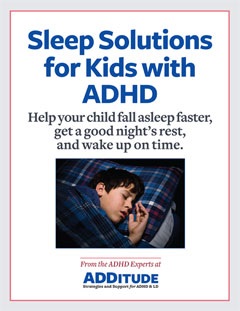Sleep Interventions May Improve ADHD Symptoms in Children
A small study found that children who undergo doctor-guided “sleep hygiene” interventions not only sleep better; they also show a decrease in ADHD symptoms like hyperactivity.
ADHD News Feed
|
posted by
Devon Frye
Next Blog » An Inactive Lifestyle May Hurt Boys’ Academic Progress
Previous Blog « A Mom’s Ability to Work Affected by Her Child’s ADHD




